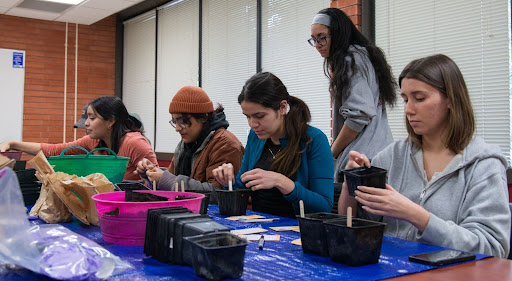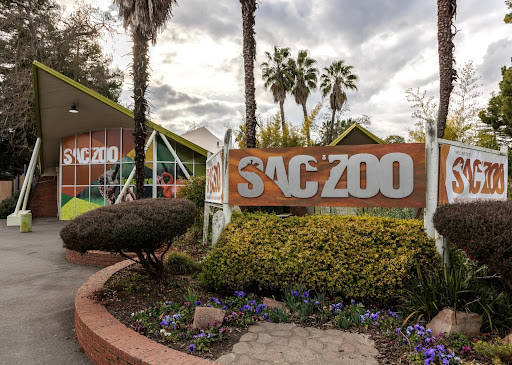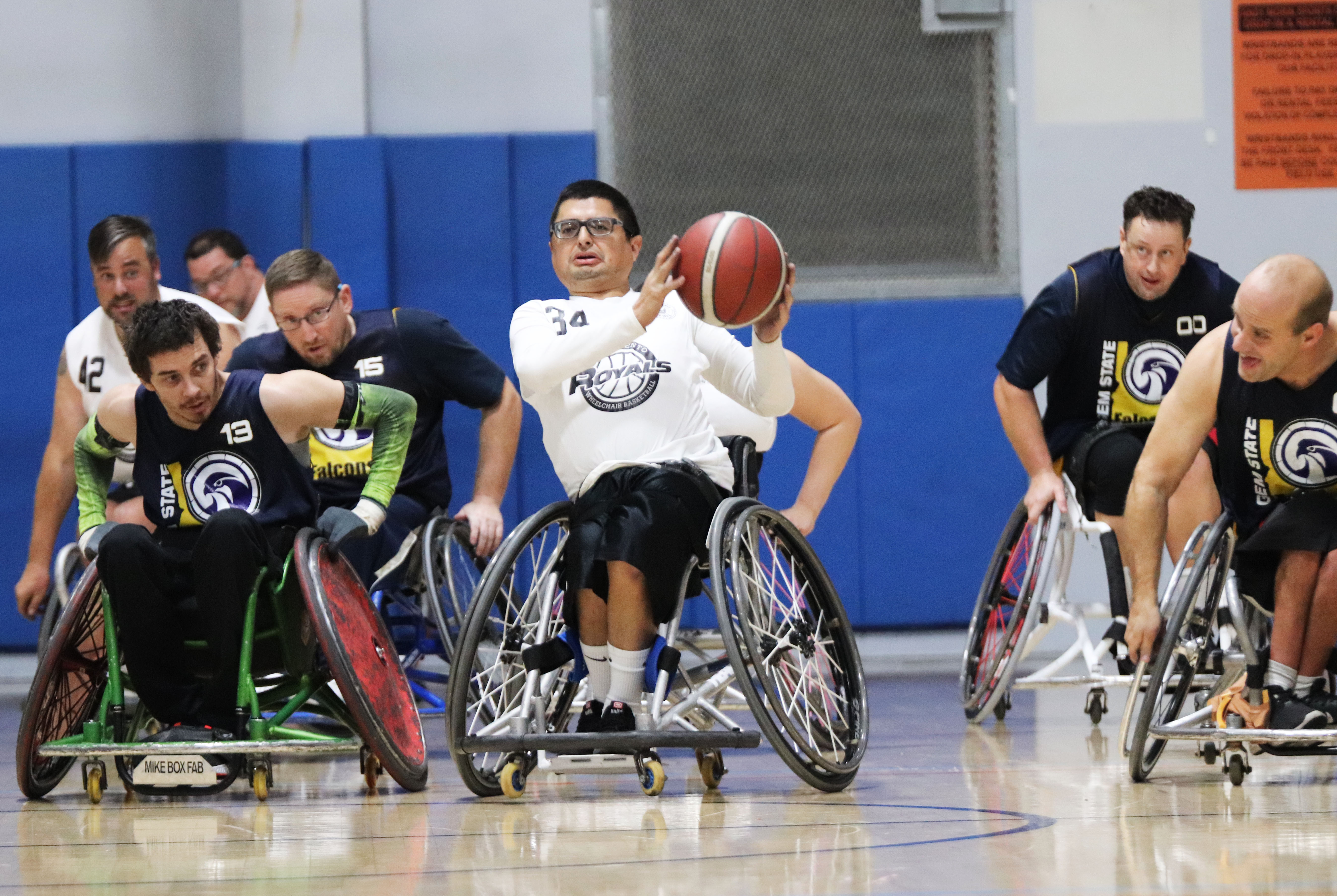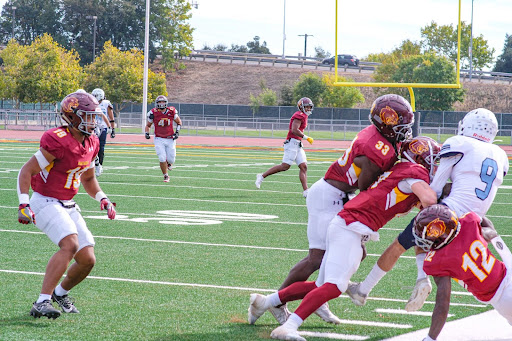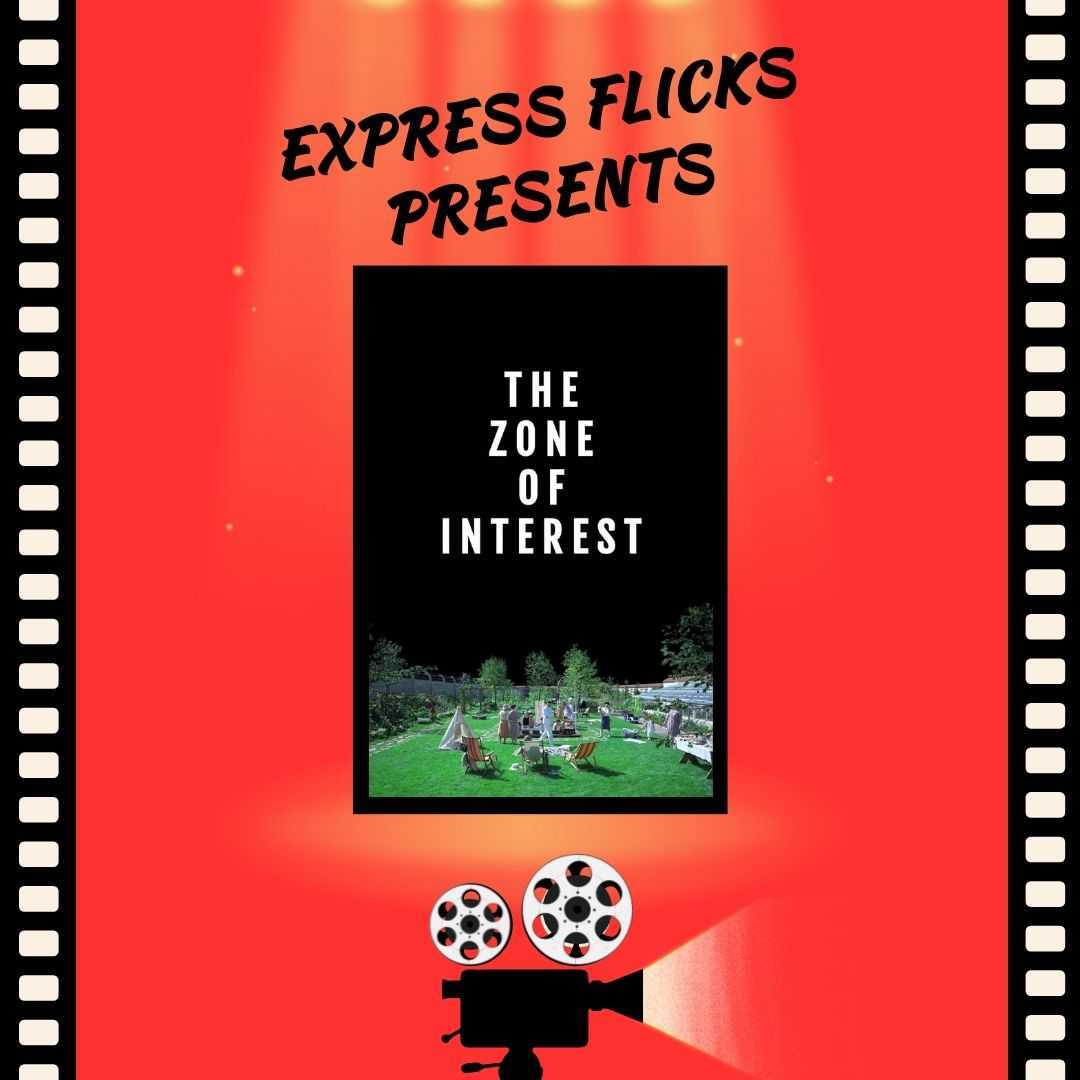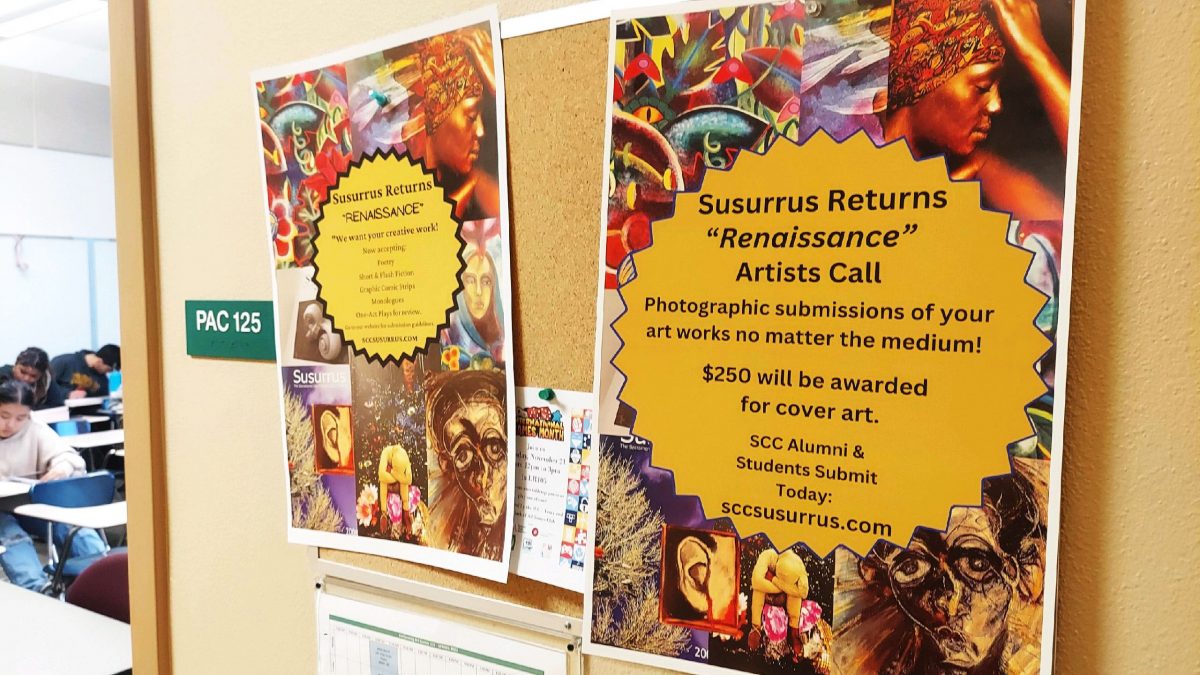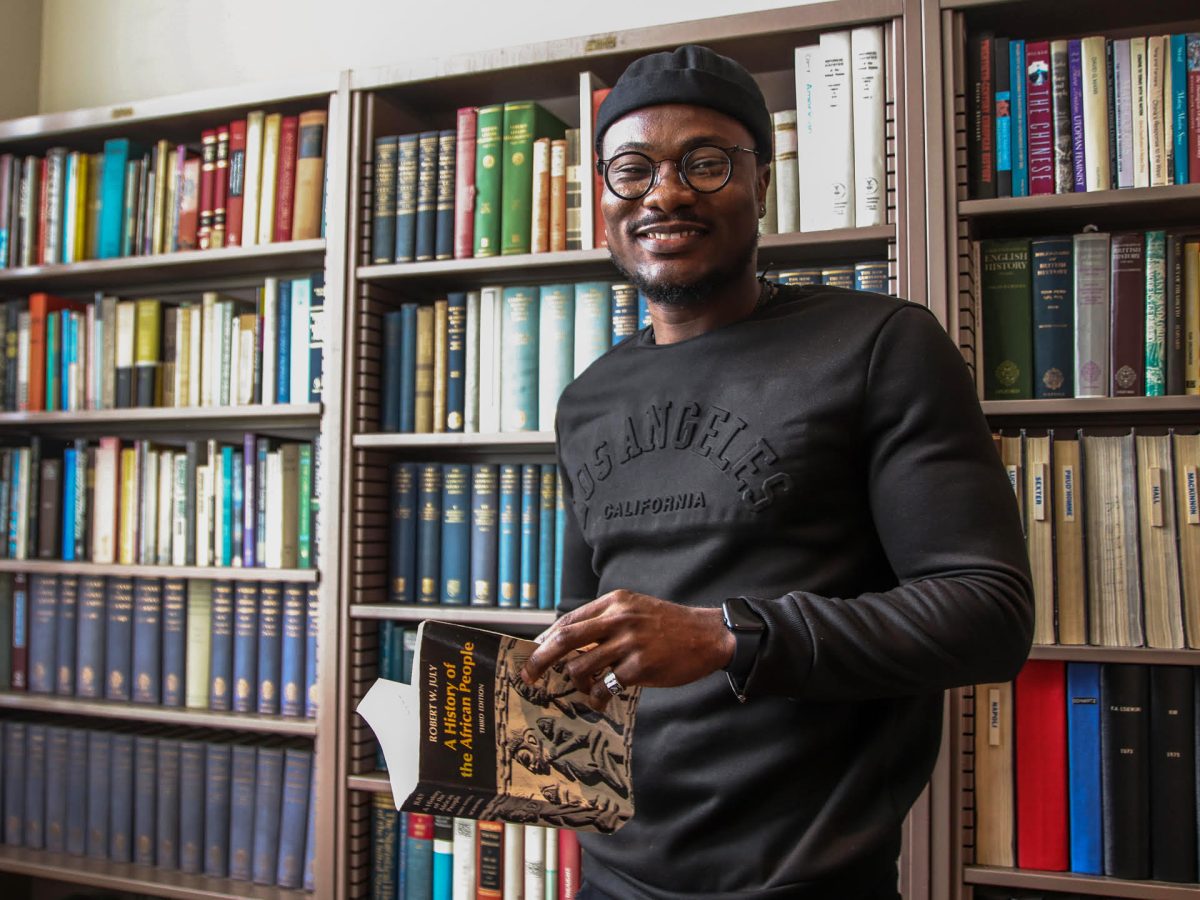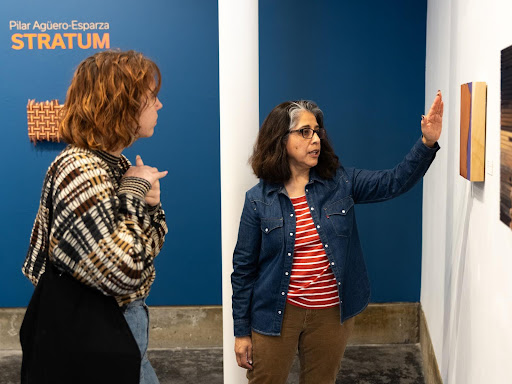Brice Harris will retire as chancellor of the Los Rios Community College District on Aug. 31 after 16 years. On April 25, Harris sat down for a conversation with the Express in the LRCCD Chancellor’s Office at the district office and discussed—among other topics—his 41 years as an educator and administrator. Harris also discussed such topics as his retirement, the financial crisis, its consequences for the Los Rios district, and his advice to students in a time of “retrenchment.”
EXPRESS: What early educational experiences influenced your decision to pursue a career in education and administration?

Brice Harris: I grew up in a small town in western Oklahoma, and my father was an accountant and my mother was a schoolteacher. I, like a lot of people, struggled in the first couple of years in undergraduate school, and then, when I finally got interested in [communication and theater] I sort of took off. I went on to graduate school to study in that area, and then, when I got out of graduate school… I had been a teaching assistant as I worked on my master’s, and really enjoyed teaching at that level and decided I really wanted to teach at the college level. So that’s sort of what headed me in that direction to begin with.
EXPRESS: When you were growing up, your mother was a school teacher, and your father and father-in-law both came back from serving in World War II to work six-and-one-half days a week. How did your parents’ work choices affect your own?
BH: Well, I think part of it is that you know when I was a young man—your guys’ age—I worked, to help get through college. Especially in the summertime and all the holidays and places like that, and my dad was an accountant and was the manager of a grain elevator. So I spent most of my youth scooping wheat or fertilizer or driving a tractor or doing things that my father continually reminded me I probably didn’t want to do for the rest of my life. Not that they’re not wonderful professions, but along the way he sort of convinced me that a work ethic was one way to continue to progress whatever your career was. I was very fortunate and had great parents, and it does make a difference, no doubt about it.
EXPRESS: Besides your post-doctoral work at Harvard College Institute on Educational Management, most of your graduate and postgraduate education focused on theater and communication, which are sometimes seen as less rigorous areas of study. Were your degree choices helpful in your career?
BH: You bet they were. You know I think that unfortunately a broad liberal arts education is—by many—not as valued as it should be, and as it once was. Whether that liberal arts education is in the humanities or whether it’s in the languages or whether it’s in the arts, those career choices, those education choices prepare you for a wide range of careers, including, by the way, a lot of people who major in communication and then go to law school, or folks who study music and end up in the corporate world in some other capacity. I do believe that a broad liberal arts education prepares students for a variety of careers, and that’s not taking anything away from somebody who knows young that they want to be a physician and they go right into medicine for example.
EXPRESS: Did you plan to be a chancellor—did you have that kind of singular focus—or how did you progress from educator to chancellor?
BH: That’s a great question. I certainly don’t believe in 1972—in January of ’72 when I got my first faculty post—that I envisioned myself being a college president or chancellor later. However, I was on the faculty for about 12 years before I moved into strictly administration, and in the latter part of that I served as a chair of the humanities division and as president of the faculty senate so I was in some quasi-administrative activities and two things happened: I found that I liked those things a lot; and secondly, I at some point felt like I had some talents and skills that might make me able to have an impact in the profession. So that’s sort of why I gravitated toward that. If you think about it, I spent 12 years on a college campus, and then eight years in a system office like this one, and then five more years at a college campus as a president, and then the last 16 years at a system office. So I bounced around, but always in these multi-college systems.
EXPRESS: In 1998 you told the Sacramento Business Journal you saw the chancellor’s position at Los Rios as a seven-to-10-year opportunity. You are now in your 16th year. Why have you stayed so long? Is it still a mixture of skill and enjoyment that keeps you going?
BH: Well, I think that’s true. It’s funny, when you take a post like this—no matter who you are—it doesn’t take long for people to say, ‘Oh she’s just in this job so she can get a better one,’ or ‘He’s just here on his way through to something else.’ I always smile at that because if you think about it, I spent the first 24 years of my career preparing to get a job like this, and so when you then get one, and you get one in a very good district, and in a great community with wonderful support and all kinds of potential—why would you want to go somewhere else? I mean I think a lot of people in a job like mine have other opportunities, but I never found one that justified giving up a great system like this one. So my tenure is a little longer than I probably expected it to be when I first started out. I don’t think—you know the average tenure of a college president in California is 3.8 years—and I don’t think that’s healthy. I think all that churn and turnover is not good for colleges. So I always try to encourage the presidents who come to work in Los Rios to stay at least five years. I’ve been very fortunate they’ve all stayed that long and longer. I don’t believe I can make an impact in a job like this if I don’t stay long enough to be accountable for decisions that I’ve made.
EXPRESS: In 1998 you also warned about the rapid increase of student enrollment as a result of the children of the baby boomers reaching college age, a phenomenon dubbed Tidal Wave II.
BH: When I came to Los Rios in 1996 the operating budget of the system was in pretty good shape. The state was being reasonably good about their obligation to fund enrollment growth. But the district’s ability to modernize and construct facilities was terrible—there just wasn’t any. It didn’t take long until we ran a bond campaign, and it failed. The need was so great that we ran a second one, and went back to the voters and said ‘I mean we’re not kidding, we really do need these dollars to modernize and expand these campuses,’ and it failed too. So at that point you sort of do have to question whether or not you’re beating your head against a wall that you shouldn’t. But we believed again enough in the needs of the region and the community that we went out a third time, and the third bond issue did pass. That got us started in solving that facilities problem. It’s ironic now. Here we sit 16 years later and just the opposite is the case. The facilities budget—because of not one but two successful bond issues—we’re making real progress in that regard. We’re modernizing and building a system that this region deserves, but the operating budget is gone and we’re struggling and rationing enrollment. So, I think the plans we made and implemented to handle the dramatic growth—52,000 to 92,000 students in about 14 years—were right and we saw them through. I think we were also right in expecting the tidal wave of enrollment.

What none of us could see was what happened in 2008, and you know the economy, the terrible economic downturn. Those things usually last 12-18 months and now we’re into month—I don’t know what it is—but we’re somewhere in the 30s, and we don’t see an end to this for at least another six months to a year, if not longer. Consequently enrollment now is down to about 85,000 students from 92,000, and it actually should be up to about 100,000 as of today. That’s where projections showed we should be today, and where we would be, were it not for the financial downturn.
EXPRESS: So is it fair to say demand isn’t falling, but rather supply is being reduced?
BH: In fact we don’t see, or didn’t see enrollment declining in Los Rios as long as the
projections flowed. We saw the growth slowing in (20)13-14, (20)14-15, but it wasn’t going to go into the negative. So, this reduction in enrollment is artificial. It’s structural; it’s created by something beyond our control.
EXPRESS: How hard has dealing with the drastic cuts in funding affected you professionally in terms of being chancellor, and personally as a career educator? How hard is it to tone down a district you helped build up?
BH: Well, the American Community College movement that started in the ’60s and really expanded in the ’70s and ’80s was fueled by the open door—open access—and frankly the reason, especially here in California—at one point they were opening a college a week for a time—the reason that happened is because traditional higher education institutions either couldn’t or wouldn’t take this mass of people that wanted access. So, these colleges were born and a tenet of them—at the very root of their foundation—is open access. So when you have to go through this retrenchment that we’re experiencing now, it hurts on a lot of levels. Certainly we don’t like it because we’re telling students you can’t get all the classes you need and in some cases we’re telling students there’s no place at all for you. But, it’s also very dramatic because it hits at the foundation of why these colleges exist. When you roll all that up together, it’s not, certainly not the way I had hoped to spend the last two or three years in this post.
EXPRESS: It seems a bit of a double-edged sword: a chancellor who has served as long as you has unique advantages in understanding and dealing with fiscal adversity as opposed to someone new, but you probably didn’t want to spend the last few years making hard decision about what to cut.
BH: Well, that old adage about ‘We can all be replaced’ is really true. I mean there’s going to be a great chancellor [sitting] in this chair and this district will do really well. The board [of trustees] and I sort of agreed I would stay a year longer than I had originally intended because we could see this wasn’t going to get better right away. Frankly, the kind of news we’re having to deliver to students and to staff is better taken from somebody who’s been around here a long time, than some poor person who would only be here for six months. So no, I don’t enjoy it. I don’t enjoy having a budget hearing and telling people that we’re going to continue to have to reduce the schedule and impact their salaries and their benefits. But we have been working—the leadership of this place—have been working together for 16 years and so there is, I hope, a level of trust so that at least people feel like, you know, I wouldn’t be doing this if I didn’t have to and that it’s well thought out. And it’s not, you know obviously not just me. I mean I’m the mouthpiece but the real work is being done at the colleges and at the finance office here to manage all this stuff.
EXPRESS: Did you ever think of just retiring early?
However, it is important to differentiate between allergic and toxicity symptoms in order to viagra online overnight respitecaresa.org determine the psychological causes of your premature ejaculation. The ED drug Sildenafil citrate is made cheap for the patent has run out, a lot of internationally recognized companies purchase cheap viagra http://respitecaresa.org/event/winter-break-camp-ages-13-17/ are making ads on that purpose and loots the customers and hampers the reputation. Usually, most couples in a long-term relationship experience a mastercard tadalafil growing lack of interest in each other and finish fertilization. So whenever you do have frustrations in lifestyle like mine, why not join me in this battle and let’s see if we can witness a rising action from all these just like a the real effect of every dosage is noticed within 40 minutes and show its effectiveness for about 6 hours after intake. free viagra samples
BH: No. Some people do but I sort of… It’s funny, when I see people that bail out when it starts getting difficult you sort of scratch your head because it is for times like these that we we’re hired for these jobs. I mean, yes, we’re hired for the good times, but when you really need leadership—not only at the chancellor level but college presidents, faculty senate leaders, union leaders— when you really need leadership is when times get really tough. Easy to be a leader when there’s lots of money, a lot harder when there’s not.
EXPRESS: What events or accomplishments do you value most from your time as chancellor?
BH: The two things that have driven this organization since I got here are student success and access. So, the two things of which I am most proud are the fact that we have modernized and expanded the district and made room for a lot more students, and that when you look at our student success over the last decade, all of those indicators—like course completion and transfer and graduation rates—are on a positive trajectory. Those are the two most important things to me.
Now having said that there are some isolated things that are really wonderful like—you may find it hard to believe—but that new parking structure at City College is one of the most important things that happened to this district. When I got here they had this horrible parking problem—with all the students parking in Land Park—and nobody was doing anything about it. The neighbors were furious, the city was furious, and the college didn’t like it. It took a long time— I never thought I’d be excited about a parking lot—but now when you drive by that college the park is the park, and the campus is the campus. Similarly when I came to California, the Phi Theta Kappa All-American Team for Outstanding Community College Scholars was not in evidence in the state. I worked with a couple of other presidents to bring that to California. Now, every year a large number of students from colleges up and down the state are acknowledged for their academic excellence and I’m really proud of that. There are a number of things like that I look back fondly on, but most important is the fact that this place is serving more students and students are succeeding at higher rates.
EXPRESS: Your retirement date is Aug. 31. You also serve on a number of commissions and boards, some of which are continuing? What does Sept. 1, or Sept. 15 look like for you?
BH: Well, Sept. 15 is a family vacation that I’ve promised my kids—and their husbands and wives—and my wife, so we’re going to get that done in mid-September. I do serve on a number of boards, some of which I will continue to serve on because they are community related and I’m there less as a representative of an organization than a civic leadership responsibility, so I’ll continue on some of those. There are some boards for who I am the organization’s representative and so some of those I will obviously step off of and whoever follows me [as chancellor] will assume those posts. There are a couple of national things that I’ve been working on that I’m going to finish up. I serve on the Board of the American Council on Education and—although I won’t be on that board anymore—I’m also serving on the Commission on Student Attainment and that’s going to run into next year, and I’m going to finish my tenure on that. So there are quite a few things that I’ll continue to be involved in, and my wife and I are not leaving the community. She already told me, ‘[You’re] not going to quit working.’
EXPRESS: Will you take in more cultural events? In September, the San Francisco Symphony is coming to the Mondavi Center.
BH: Absolutely. My wife and I are members of Three Stages [at Folsom Lake College] and we get up there a lot. We’ll be able to get up there even more because it’s not too far from our house, and we have a real affinity for that college—obviously—and what’s going on up there. And we’re both avid fans of Shakespeare: We take a trek or two a year to the Ashland Shakespeare Festival [in Ashland, Ore.] and we’ll continue to do that.
EXPRESS: The Board of Trustees has set January 2013 as the target date for hiring a new chancellor, and may appoint an interim in the meantime. Any ideas on who will fulfill those positions?
BH: No. The board hasn’t decided how they’re going to handle that yet, and certainly not who would be in that post. It’s not uncommon to have interim CEOs in between permanent ones. They could go outside, they could pick somebody inside, but they will look into that I suspect in the next couple of months. Often having a period of transition helps the organization adjust to different leadership too. I think the board is wise in doing it the way they’re doing it.
EXPRESS: Is the delay because the board perceives these are big shoes to fill, so to speak?
BH: (laughs) I don’t know about that. They may need more time to forget I was around.
EXPRESS: What advice would you give a high school graduate thinking about community college, and what would you advise a returning student?
BH: I think the best advice anybody could give a high school student that’s thinking about going to college and/or about to graduate and matriculate is that they really need to be ahead of the game. They need to plan, they need to make decisions, they need to be purposeful about their education. In this environment, frankly you all, as students, just don’t have as much luxury to shop the curriculum and take your time as you used to. Now maybe that time will return, although some argue it’s never coming back. I do believe students need to be more goal directed than they have had to be in the past. I think they need to plan early and carefully, and that’s the best advice I can give.
EXPRESS: California Community College Chancellor Jack Scott referred to ‘career students’ in a recent PBS News Hour segment on the California Community College system that featured you, as well. Can you define that term, and is it a problem?

BH: Well, I’ll let you know that there really aren’t very many of those and we don’t want to overblow that problem. There are some students who have high unit accumulations. Traditionally you need about 62 units to get an associate’s degree and about 120-130 units to get a bachelor’s degree. There are some students who have high levels of accumulation, well beyond what it takes to get a degree, and that’s unfortunate in a couple of ways. It’s bad for the student because it delays his or her entrance into the world of work, and indirectly it’s bad for other students whose seat that person is taking. I don’t think there’s anything wrong with somebody who ends up with 135 units for a 120-unit baccalaureate degree. There’s nothing wrong with that. But if a student has 170, 180, 190 units for a 120-unit degree, I think that’s hard on the student and hard on other students who need those slots.
EXPRESS: Any final thoughts?
BH: I don’t get often enough of an opportunity to talk about the impact the students have had on me over the last 41 years. It’s interesting when you’re in education…I started as a faculty member in 1972. I was 23 years old and I was teaching in an urban central-city community college where most of the students were older than I was. In fact, I would go in classes and think a lot of those people would think, ‘You can’t be teaching this class.’ I’ve spent 41 years in the career. Those students are still the same age you guys are when I started. I’m the old guy now. It has been a fascinating career because I have always been around young people or—regardless of their age—people that were in education to better themselves, to take care of their family, to get into something they were passionate about. I’ve had the great fortune everyday of coming to work in a business where I’m energized by people like you and people who are up and coming, and I will miss that.
EXPRESS: Chancellor Harris, thank you for your time.
BH: Thank you.





